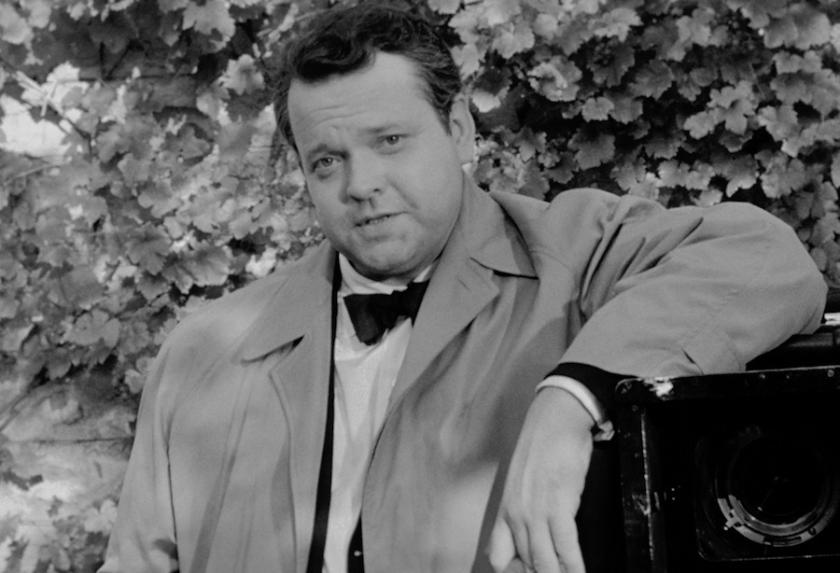Orson Welles was commissioned by ITV in 1955 to make a 26-part series of travelogues. Always in search of money to fund his independent projects, he was initially enthused by the plan - though predictably he didn’t see it through. Only six episodes were broadcast – none of which stray out of Welles’ favourite European destinations.
They’re full of artifice; sequences are repeated, and stock footage is used liberally. Welles is frequently seen posing with his handheld camera, though it’s obviously not his film that we’re watching. Some of the interview sequences seem stilted – largely because they were shot with one camera, the reverse footage of Welles filmed later in the studio and edited in. The Paris programme is especially weak, much of it an unedifying interview with eccentric sculptor Raymond Duncan and some truly terrible avant-garde poetry. The closing soliloquy extolling the joys of train travel is cringeworthy.
What survives is riveting; a startlingly modern, smartly-edited documentary
A trip to Vienna also disappoints, Welles as interested in sampling the city’s coffee, cakes and pastries as he is in revisiting locations used in The Third Man. The London film is much more involving; watching Welles interact with Chelsea pensioners and a spirited bunch of Hackney widows is delightful. Things get seriously hokey in Madrid, where Kenneth Tynan and wife Elaine Dundy provide the clumsy intro. When Welles does eventually show up, it’s clear that his stagey bullfight commentary (where we get to see the bull’s death) was recorded separately. What makes these 25-minute films watchable is the sharpness and clarity of the visuals; both image and sound quality are excellent.
The bonus features are outstanding, however. Welles’ seventh episode, The Tragedy of Lurs, was left unfinished. An examination of a notorious rural murder, we get to see the footage as restored and reconstructed in 2000 by Christophe Cognet. What survives is riveting; a startlingly modern, smartly-edited documentary, and easily the best of the series. Surviving crew members recall Welles with warmth and admiration. And there’s an entertaining 1967 interview with Bernard Levin, opening with the jowly director’s confession that of all the things he’s done, radio has given him the most pleasure: “You could put on an hour’s show, with a marvellous cast of people, and be finished after five days of work – an exciting five days. I’m now in the slowest of all mediums – film.”















Add comment